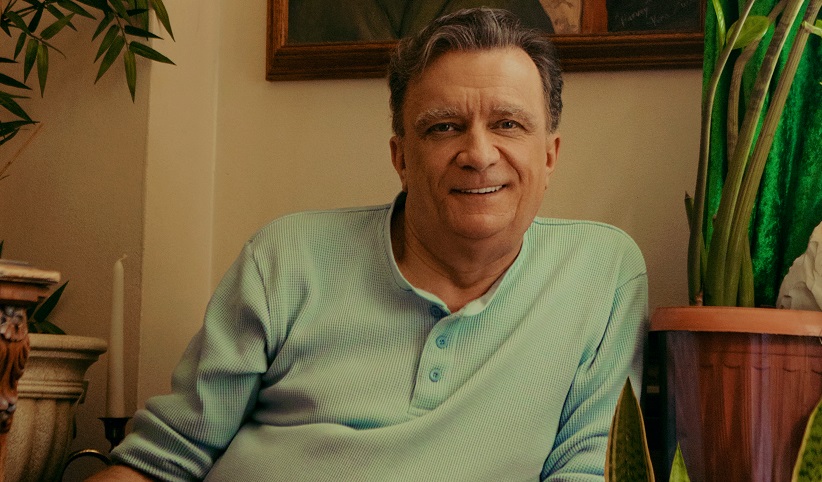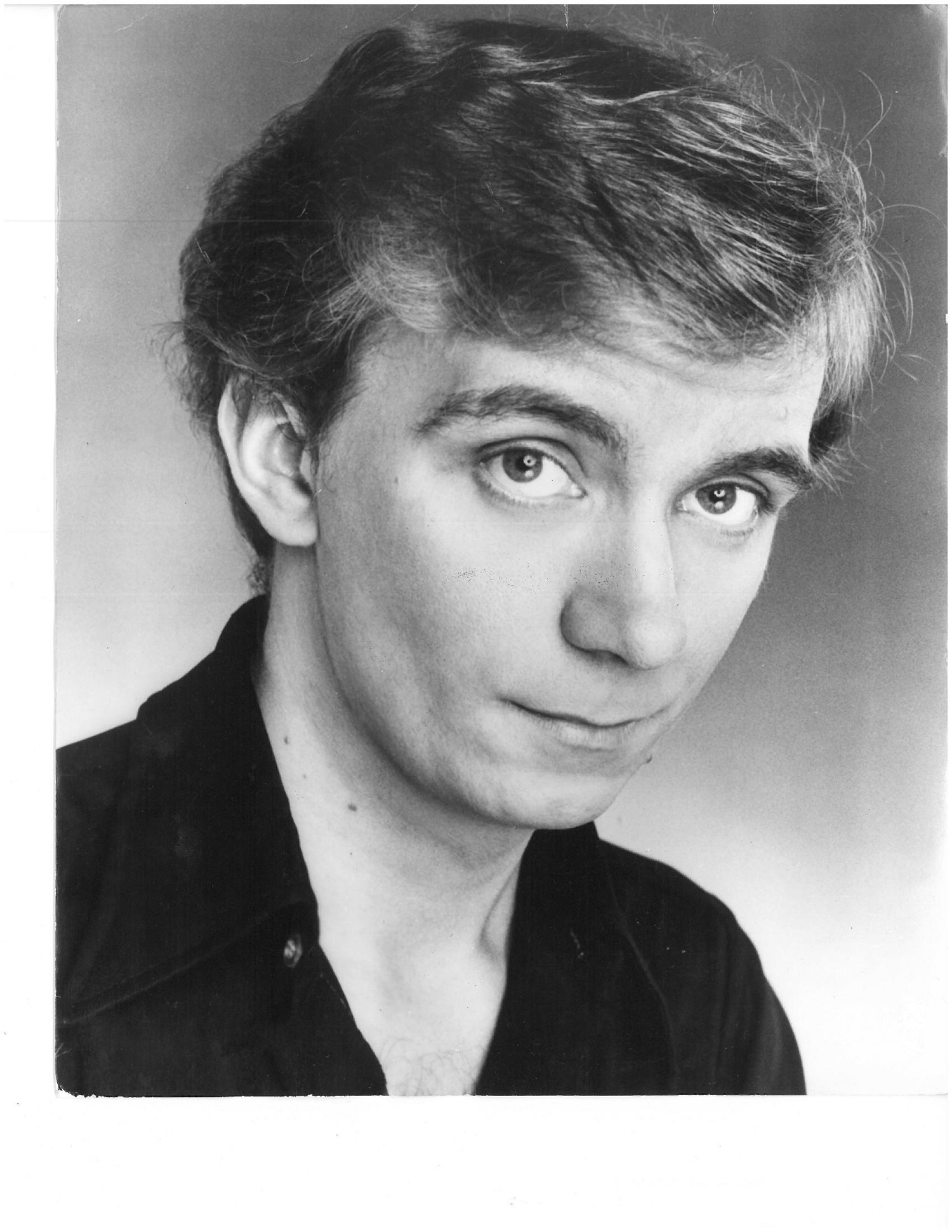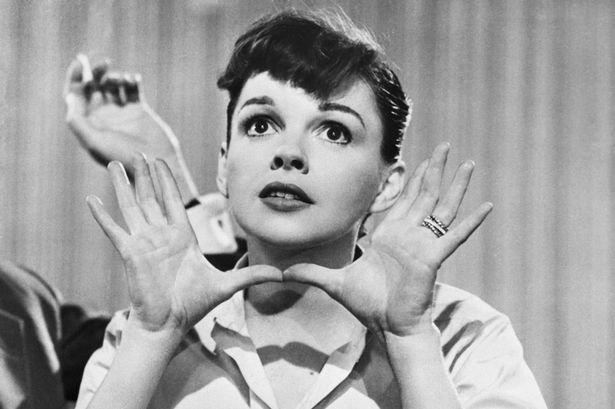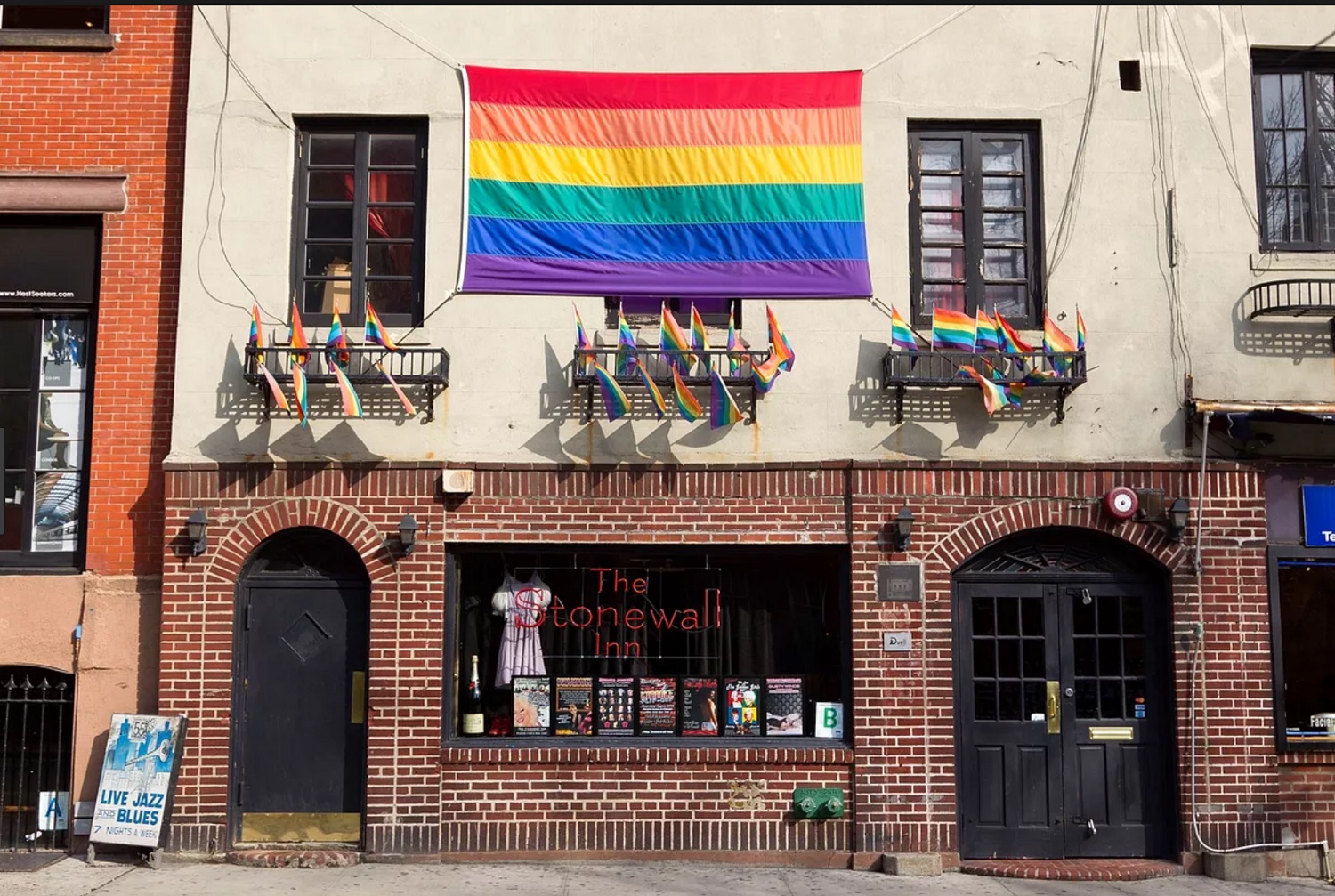Stonewall 50: Eyewitness Michael-Anthony Nozzi speaks about the fateful night in New York
Today (June 28) marks the 50th anniversary of the Stonewall riots
By Steve Brown

This article was published in our Summer Pride issue 311.
Words: Alexis Gregory
Approaching his 67th birthday, Michael-Anthony Nozzi is one of a dwindling number of eye-witnesses to the start of the Stonewall Inn riots. That fateful night in New York 50 years ago was his first in the Big Apple.
“That was my introduction to not only New York City, but also to what it was like to be a gay person in the United States of America in 1969,” he says from Los Angeles where he now lives.
Having been much younger than many of the other regular patrons of the mafia-owned gay dive-bar leaves Michael in the position to still be here to share his story of that weekend of 28-29 June.
He describes the regular clientele as older drag queens. “I don’t think I ever saw a young drag queen, all [were] middle age or older; [much] older.”
Young hustlers, most of a similar age to a young Michael, flocked to the bar to make money off the older men.
Michael says: “There were a lot of street kids hanging around. They were just in there trying to survive.
“I think I’m one of the only ones left from that night at the Stonewall. I really do. I never meet anyone else who was there. I’d be surprised, I really would.
“Most of the people who were there, the frequent goers to the Stonewall, would be 130 now and the hustlers probably died because of HIV/Aids.”

Michael was born in Chambersburg, in rural Pennsylvania, but during that June weekend he was in New York to check out acting schools.
“I was just a country boy, a country hick. In many ways I still am.”
Some of Michael’s older friends took him to the Stonewall Inn for the first time on what ended up being the weekend of the riots.
He remembers the venue as showing no signs that it was about to become immortalised in queer history. In fact, quite the opposite.
“It was so dirty. I thought to myself that this was a place I never wanted to go back to and I couldn’t believe it was even open.
“I asked myself: ‘Why would anyone want to come here?’ I got to see how dreary and dirty the Stonewall was, with no running water so that by 10pm you could smell the toilets all the way out in the bar.”
Michael describes the spit-and-sawdust joint as reeking.
“Glasses were soaped up in one bowl under a makeshift bar and rinsed in another,” he adds.
“That water never got changed, from the time the Stonewall opened at four in the afternoon until it closed at four the following morning.”
Sparsely furnished, the bar had a table in the corner with a glass jar on it that carried a label proclaiming it The Wishing Well.
Patrons could flip a coin in and make a wish. “The money was supposed to go to charity but charity was whoever was working that night,” says Michael. “It went in their pocket.”
A rickety old jukebox on the makeshift dancefloor played the songs of fabled female singers of yesteryear: Peggy Lee, Dinah Shore, Patsy Cline and… Judy Garland. But more on Judy, later.
Men danced in this area of the bar at a time when it was illegal for two men to dance together.
Visitors to the bar would have to show their ID through a small funnyhole window before even being allowed into the joint which was lit by only a handful of red or blue lightbulbs, plus a single white lightbulb hanging down.
“Whoever was working the door, if they thought the cops were coming or someone to be concerned about, they would hit that light switch,” Michael explains.
The patrons knew what this meant and what was about to occur. “If you were holding hands or touching, you stopped. If you were dancing, you stepped away because [the place was] about to be raided.”
The police would raid the bar about twice a month, help themselves to the money from the till and the Wishing Well jar and “emotionally terrorise” the customers, Michael adds.
Those questioned by the cops would be made to show ID and had their phone numbers registered. There was also the very real and potentially devastating threat of having their names listed in the newspapers and exposed as being busted at a gay bar.
But, adds Michael, the police’s actions didn’t stop there. “Many people were beaten senseless but that was never reported in the press.
“For the police, back then, harassing and abusing gays was a sport. If the cops were bored, they’d raid the Stonewall, maybe punch a few customers and take the cash out of the register. That was just something fun to do.”
Michael describes the elderly drag queens, camp older gay men and vulnerable queer street kids as easy targets because they didn’t ever fight back, they just cowered.
“If you even looked at the cops hard, they would beat you with a club.” But there was a reason why tensions were running extra high that famous night, why Stonewall customers, who had previously taken every beating and dehumanising humiliating slap, reacted in the way they did this time.

“It was the perfect storm,” Michael muses. “A hot summer night, a bar that normally holds 20 to 30 people and now all of a sudden with 200, the cops stupidly deciding that was the bar they are going to raid tonight and… Judy dying the week before.”
Yes, Judy Garland. There is much myth and urban legend that gay icon Garland’s death had left her gay fans so grief stricken that it was clearly the wrong time to mess with a crowd of grieving queens.
Michael insists that the connection is very real and was a trigger for the sequence of events that unfolded, but perhaps in a more practical way than many of us imagine.
“All over the United States, gay men loved Hollywood and there was something about gays and Judy Garland. Gay men always loved Judy because of The Wizard of Oz.”
The Stonewall Inn had planned a tribute to the actress and its popularity was causing a dent in the other local gay bars’ weekend takings.
“The Stonewall was showing Judy’s classic movie A Star Is Born, projected on to bedsheets hung from one corner to another. Word had got out and the place was packed,” Michael explains.
Gay men from neighbouring bars, who would have never normally set foot in the run-down, seedy Stonewall — a home to mere queer outcasts — were there.
Michael talks about queens from the gay country and western bar Boots and Saddles, which was not usually raided because many gay women joined their queer brothers there, and “the cops were too dumb to realise women could be lesbians,” so thought the bar was full of straight people.
There were also the queens who frequented nearby leather bar The Ram Rod. Michael believes that establishment was never raided either.
“The cops didn’t know what to do with queens in leather… on motorcycles.” The idea of throngs of butched-up leather queens sitting on the Stonewall floor, watching the camp classic is an intriguing one to say the least.
“Oh, the leather queens loved Judy,” Michael exclaims. Among the other bars suffering a loss in takings was Julius’, which was managed by the police department in direct competition to the mob-owned Stonewall. “They did not like losing all that business on a Saturday night.
“Instead of the packed bar they were used to with people waiting five deep to get drinks, there were empty bar stools. [People] were all going to the Stonewall.”
The bar manager at Julius’ used his police connections to tip off the NYPD who planned to raid the Stonewall so that all of the drinkers would “have to go back to all the other bars.”
Michael says that the police got stuck in pretty quickly, throwing people out of the bar and beating many queens with clubs.
But the regular Stonewall clientele, joined by the drinkers from the other bars who were not used to getting raided and receiving such rough police treatment, pulled together — refusing to take the harassment without fighting back.
Crowds swarmed around, outside the Stonewall, and passers-by, including many straight people, started to get involved. The police could not tell who were Stonewall customers, who they should be forcibly restraining, and who were not.
“The cops were having a hard time holding everybody back. It had always been easy before, you could tell the Stonewall clientele by how they looked: old drag queens and old men.
“But this time the cops didn’t know who the people fighting back were and who were mere spectators. And the surrounding crowd kept getting larger and larger,” explains Michael.
Back inside the Stonewall, one over-eager inexperienced cop took it upon himself to confiscate the projector and film reel that a Stonewall customer had brought in for the tribute to Garland.

As the dispute deepened between the officer and owner of the equipment, one black drag queen decided she had enough and picked up the glass Wishing Well jar, heavy and full of coins, and smashed it over the head of the policeman.
“And that,” Michael says, “is when the shit hit the fan. The gays started fighting back.”
Michael describes the “gore and horror” that ensued.
“You could see people holding their bleeding heads. There was blood all over the sidewalk. There was blood all over the walls, bloody hand prints from where people had [tried to steady themselves while] stumbling away from the cops. I couldn’t believe what I was seeing.”
Michael threw himself into the melee and volunteered to help other patrons get the bloodied victims cleaned up, “because the cops had told the cab companies not to pick up anyone up who was bleeding or bloody,” so nobody was able to get to hospital.
Despite all that, Michael says: “I felt safer on the sidewalk, in front of the Stonewall, in the middle of a riot, than I ever did in my home town.
“I didn’t have time to be scared. I’m not the kind of person who would stand back and not help. I’ve never been that kind of person. I wasn’t brought up that way.”
Hours later, after Michael and his new friends had cleaned up many beaten and bloody Stonewall customers and had finally been able to take them to hospital, the situation calmed down.
“It was a mess. Cars were damaged. Parking meters were damaged.” Michael returned the next day. “They were cleaning it up. The door was open and curiosity got the better of me. The bed-sheet was still tied up against the wall.
“Outside, some of the coins from the Wishing Well were on the sidewalk. But you couldn’t pick them up: there was too much blood and the coins were stuck to it.”
Although Michael has never discovered the name of the drag queen whose reaction had been the catalyst for the fighting, he says: “She got beat real bad. They clubbed the hell out of her.”
I ask if he was familiar with some of the other names associated with the now legendary sequence of events: Marsha P Johnson and Stormé DeLarverie.
“No I was not. But for all I know they could have been right beside me. I was running on energy, scared to death but unable to stop helping.”
Post-Stonewall, life in gay New York simply went on. “After that night, things happened so fast in the gay community that nobody, including me, looked back and thought ‘mmm, that was instrumental’.
“As with all history, we never realise the social impact until it can be reflected upon years later. It wasn’t until 20 years on that you realised the significance of it. It was a huge, pivotal point.”
The following year, the first Pride march took place, commemorating that night in the Stonewall. Michael missed that event because he was working in theatre by that next summer.
“But I marched in many after that,” he points out. The myths around the Stonewall Inn riot live on and I wonder what Michael thinks of the rumour mill and sometimes misinformation that shrouds that night.

“I used to get very upset and was diligent in trying get the truth out but now I realise time will tell the truth and what really happened can never be changed.
Even if the stories get turned around or are not accurate, at least it is being talked about rather than forgotten.
“There will be stories about Stonewall for years to come and much discussion on what happened and what was done but the one true fact remains above all: it was a stone that was thrown around the world. It began the revolution of gay freedom and rights.”
Michael never imagined that 50 years later he would be discussing that fateful evening.
“I never thought I would still be alive. I’ve already lived longer than I thought I would,” he grins. “If I knew I was going to live this long. I would have taken better care of myself,” he says.
But then laughs and adds: “Nah, I would have done everything exactly as I have done.” Michael’s story is one of three that form my play Riot Act. The idea that his story is immortalised for future generations astounds him.
“I have never been so honoured,” he beams. Even being interviewed by Attitude leaves him feeling humble. For now, Michael has a message for senior members of the LGBTQ community.
“Keep living and don’t stop believing. Be proud of the footsteps you have left in the sands of time that others are using, as a guide, to move forward.”
To younger members of the community, he says: “Embrace your history. Embrace your past. Talk to old gay men and old gay women and hear their stories; mine is just a drop in the ocean, next to the other stories out there.”
Riot Act in partnership with Attitude will be staged at the Arcola Theatre, London, on 23 and 30 June before going on tour around the UK in July and August. riotacttheplay.com
The text is published by Oberon Books. oberonbooks.com
Photography by Raul Romo
